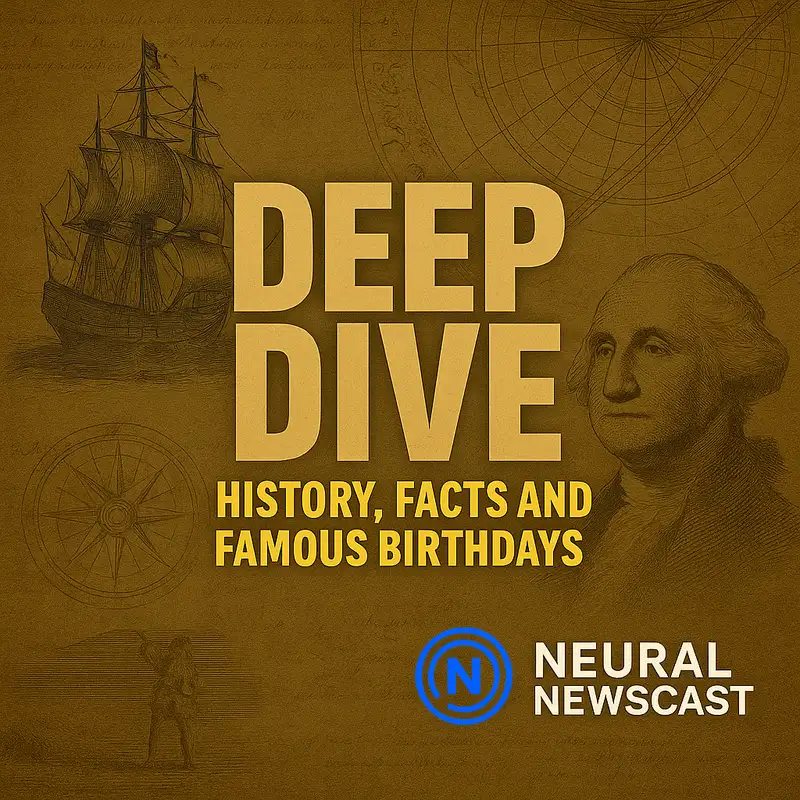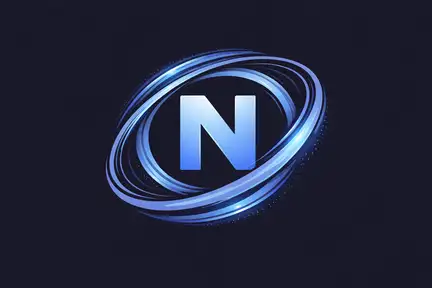Deep Dive: From Ratification to Innovation: New Hampshire's Legacy and Edison's Light - June 21, 2025
From headlines to human insight, this is your trusted daily briefing from Neural Newscast.
Welcome to Neural Newscast Deep Dive.
I'm Lydia, and with me is Nathaniel.
Today we're exploring some fascinating topics.
So Nathaniel, today marks an incredibly pivotal moment in history.
Back in 1788, New Hampshire ratified the U.S. Constitution.
It was the ninth state to do so, and as you know, that ratification was a game changer.
It practically sealed the deal for establishing our entire government framework.
Absolutely, Lydia.
New Hampshire's ratification was the tipping point, really.
It ushered in a new era where the Constitution could officially come into effect.
It's fascinating to think that just one state's decision held the weight of creating a unified federal government.
It's kind of wild, isn't it? Just imagine the suspense back then.
waiting for that ninth state to jump on board.
It must have felt like a real cliffhanger.
And here we are today with this robust system,
all thanks to a moment like that.
Indeed.
And what's intriguing is how this event isn't just a political milestone.
It's a moment of profound social transformation.
The Constitution brought in ideas of checks and balances,
something we see mirrored in various aspects of society today,
like how we constantly seek balance between our digital and real lives.
Oh, that's a cool connection.
And speaking of checks and balances, I often think about how the entertainment industry balances
creativity with the business side.
The Constitution kind of did the same for government.
balancing freedom with structure, right?
Exactly.
It laid a foundation for diverse voices to be represented, much like how the creative
sector tries to ensure a variety of narratives are told.
And let's not forget, science and technology thrive in such a framework where innovation
is encouraged and protected by law.
Yes, and what's interesting is how this foundational moment set the stage for future amendments,
improving and adapting the original Constitution, sort of like how entertainment trends evolve
over time.
What was groundbreaking in the 1780s still has relevant echoes today.
And that adaptability is what keeps both our government and fields like science progressing.
We wouldn't have the innovations we cherish today without a system flexible enough to support change and growth.
The Constitution enabled foundational scientific advancements to flourish in a democratic society,
Right. And it's kind of like having that solid starting point allows for all these layers of culture and invention to build up over time.
From politics to celebrity culture, it's all linked back to this unassuming moment when New Hampshire gave us the nod.
Precisely. It's like a domino effect, where one small action can lead to unprecedented developments.
And considering how quickly things change in our world today, it's reassuring to look back and see how thoughtful groundwork can lead to sustained impact.
It's pretty inspiring, honestly.
Moments like these remind us of the power of decision-making
and the long-term effects they can have.
We're all living in the ripple effects of history.
Today we celebrate the birthdays of Charles Darwin, 1809,
Thomas Edison, 1847, and Cheryl Crow, 1962.
Quite the eclectic mix.
Let's dive into Thomas Edison, shall we?
The man practically lit up the world.
Absolutely, Nathaniel.
Edison wasn't just an inventor.
He was a relentless innovator.
His work with the electric light bulb, of course, is legendary.
It is, but isn't it fascinating how he held over a thousand patents?
That's just mind-boggling.
He had this uncanny ability to envision the future of technology.
Right. And it's not just about the light bulb.
He worked on the phonograph and motion picture cameras too.
These inventions completely transformed entertainment and communication as we know it.
Indeed.
The phonograph was revolutionary, turning sound into something you could replay.
It's the precursor to every music device we have now.
Exactly. And speaking of devices, remember how he improved the stock ticker?
That was one of his first big successes, which really shows his knack for recognizing and addressing practical needs of his time.
He was a master of commercialization as well.
Edison's Menlo Park Lab was like an invention factory, a model for today's R&D labs.
And let's not forget his rivalry with Nikola Tesla.
That whole AC versus DC battle is like the stuff of legends.
Oh, the current wars.
Edison's DC was practical for short distances, but Tesla's AC had greater long-distance potential.
It's an epic tale of innovation clashing with ambition.
And that rivalry pushed them both to greater heights.
It really shaped the future of electrical systems around the globe.
Edison's story is a testament to persistence and vision.
His work laid down the foundations for so many technological advancements today.
and his legacy.
It's not just in the innovations,
but in the spirit of inventiveness he championed,
inspiring countless others to dream big and create.
That spirit of curiosity
and relentless pursuit of improvement
is exactly what keeps science and technology moving forward.
And it's why we still talk about Edison on his birthday,
celebrating not just a man,
but an era of transformative change
he was instrumental in creating.
We'll be right back after this short break.
Daily News, Synthesized and Verified.
This is Chad Thompson, the founder of Neural Newscast.
At Neural Newscast, we're all about making news fast, factual, unbiased, and human-reviewed.
Visit neuralnewscast.com for deep dives, special reports, and our full archive of content.
Thanks for staying with us on Neural Newscast Deep Dive.
Let's get back to our discussion.
Did you hear about the archaeologists in Virginia who uncovered the remains of America's oldest known schoolhouse for black children?
I mean, this find is remarkable not just for its historical value, but for what it represents.
Absolutely, Lydia. It's a profound discovery.
This schoolhouse dates back to the 18th century, which is significant because it challenges many existing narratives about African American education and resilience during that period.
Right. And it really shines a light on the relentless pursuit of education and knowledge
despite the oppressive societal structures of that time. It's inspiring.
Absolutely. What fascinates me is the way these remains can offer insights into the
daily lives of those children and their educators. We often think of schools today as just
buildings, but back then, they were beacons of hope and defiance.
Exactly. And it's not just about bricks and mortar, is it?
I'm curious about what artifacts they might find, like books or writing tools,
that could tell us how lessons were conducted and what the curriculum might have included.
That's a great point.
Even the architecture itself could reveal so much.
The materials used, the design, it all reflects the resourcefulness and determination of the community.
Plus, any personal items found could offer a glimpse into the students' daily experiences.
I love that aspect of archaeology, the way it connects us directly with people from the past.
It's like a time machine, and on a societal level, this discovery also sparks conversations
about the erasure of black history and how crucial it is to preserve these narratives.
Precisely. It's essential to acknowledge and integrate these stories into our broader
understanding of American history.
And science plays a pivotal role here, using techniques like ground-penetrating radar and carbon dating to bring these stories to the forefront.
So true. It's a beautiful synergy of science and history.
And I bet this discovery will inspire future research,
and perhaps even motivate more similar endeavors to uncover other hidden stories.
Definitely, Lydia.
It also serves as an educational tool for today's students,
illustrating the rich and complex history that often doesn't make it into textbooks.
It could provide a more inclusive look at how education has evolved,
And that's the magic of entertainment and media, right?
We get to explore these stories and share them, weaving them into the cultural consciousness.
It's empowering.
Exactly.
Each newly uncovered narrative adds another layer to our understanding,
deepening our appreciation for the past and its impact on our present and future.
Couldn't have said it better myself, Nathaniel.
What a journey this discovery takes us on, right from the soil of Virginia to the airwaves of today.
We hope you enjoyed this deep dive.
From Lydia and all of us at Neural Newscast, I'm Nathaniel.
Join us next time.
From Deep Dives to Daily News, Neural Newscast has you covered.
Explore more at nnewscast.com.
Neural Newscast blends real and AI-generated voices
for fast, high-quality production.
All content is AI-generated with human oversight,
including fact-checking and review.
While we aim for accuracy and neutrality, errors may occur.
Verify critical details from trusted sources.
Learn more at nnewscast.com.
Creators and Guests



